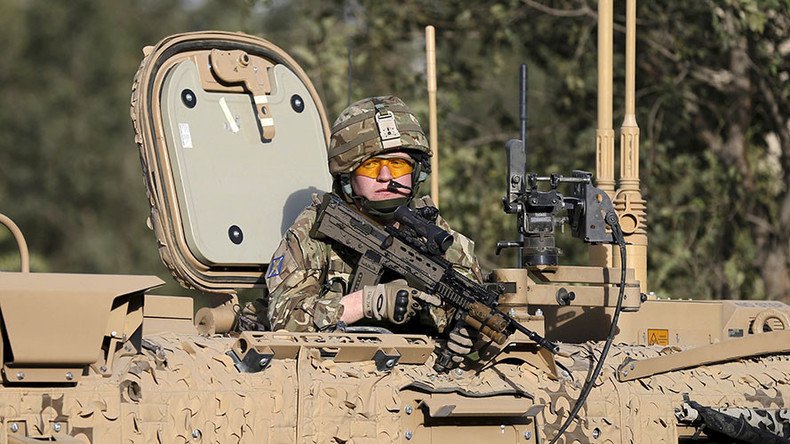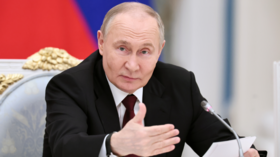UK, US officials play down security implications of Brexit, but questions remain

British and American officials are fighting to play down fears over the security implications of Brexit, but questions are being raised within the UK.
Ahead of the shock vote to exit the EU, the list of public figures warning against quitting the bloc on security grounds included former generals, wartime PMs and even US President Barack Obama.
While officials insist the ‘special relationship’ between the US and UK will survive intact and American bases in the UK will remain in place, more local issues, including that of Northern Irish stability and a potential second Scottish referendum, are raising their heads.
Special relationship
Ahead of the EU referendum Obama visited the UK and, in an unusually direct intervention into British politics, argued that British membership of the union provides the leverage for UK power in the world.
He also invoked how the two nations shared losses in war, saying that “the tens of thousands of Americans who rest in Europe's cemeteries are a silent testament to just how intertwined our prosperity and security truly are."
Since Brexit, however, he has toned down what some saw as scaremongering to offer reassurance that the US-UK alliance would be “enduring” as officials in his administration – like those of the UK government – played down the security implications.
A UK official told the Washington Post Tuesday that “from where I sit . . . we still intend to be the strongest nation in NATO that we possibly can be.
“The nature of our relationship with the US has not changed one iota,” he added.
An anonymous US security figure echoed those views, telling the paper that the transatlantic partnership would be shielded from the implications of the UK’s transition to non-EU status.
"We showed up to work the next day," he emphasized.
Irish stability
Some political parties in Northern Ireland want to stay in the EU and appear keen to engineer a break with the UK in order to achieve this.
Once the vote became clear, the Republican party Sinn Fein almost immediately said that the British government could no longer serve the interests of its constituents.
Irish PM Enda Kenny has also since raised his own concerns that Brexit could have long-term implications for stability across both the Republic and the North.
He told the Northern Irish publication News Letter on Tuesday that he fully understood deep concerns among Northern Irish people that the country would “be outside of a project that has delivered so much for political stability, reconciliation and economic prosperity.”
He pledged to work with Westminster and other groups “to see how collectively we can ensure that the gains of the last two decades are fully protected in whatever post-exit arrangements are negotiated.”
Indy referendum 2.0
With the Scottish National Party (SNP) in power north of the border stating its commitment to staying in the EU, a second referendum on Scottish independence looks possible.
This raises some of the security implications which were mentioned last time about independence.
Key questions include the presence of Trident nuclear weapons in an increasingly unwilling host nation and the potential breakdown of those parts of the armed forces aligned – at least in principle – with Scotland.
The SNP claimed that for £2.5 billion (US$3.35 billion) it could raise an army of 15,000 regulars and 5,000 reservists. It is possible that would involve a request for a transfer of military personnel and equipment from London.
This may include the four regular and two reserve battalions of the Royal Regiment of Scotland. Westminster would resist such a move on the grounds it would weaken a British military which has already been cut back under Conservative-led defense austerity measures.
General views
Throughout the referendum senior UK military figures made their thoughts known with two of the most celebrated taking entirely opposite views.
General Sir Michael Rose, former head of the SAS, was adamant that a Brexit would emancipate Britain’s armed forces.
He joined a gong-heavy list of other senior military officers when he told the Daily Mail on May 24: “Can we seriously believe that our soldiers, sailors, airmen and marines should be sent into danger by a body over which we have no control, and which answers to none of us?”
Equally prominent, however, was former army chief General Sir Mike Jackson, who took precisely the opposite view as early as February.
He signed a letter, orchestrated by Downing Street, arguing that Britain faced “grave security challenges, from instability in the Middle East and the rise of Daesh [Arabic derogatory term for Islamic State/IS], to resurgent Russian nationalism and aggression.”
“Britain will have to confront these challenges whether it is inside or outside the EU. But within the EU, we are stronger,” the signatories claimed.












